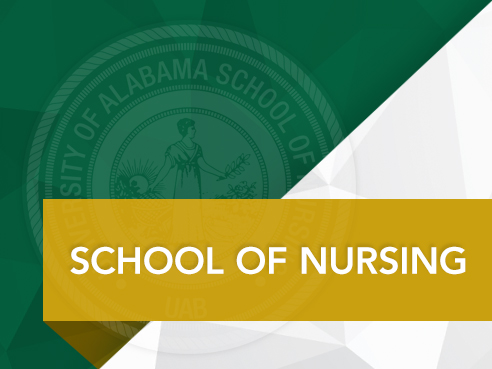 The University of Alabama at Birmingham School of Nursing has received re-designation as a Pan American Health Organization/World Health Organization Collaborating Center on International Nursing for four years (2015-2019). The school is one of nine WHO Collaborating Centers in Nursing in the United States and one of 43 in the world.
The University of Alabama at Birmingham School of Nursing has received re-designation as a Pan American Health Organization/World Health Organization Collaborating Center on International Nursing for four years (2015-2019). The school is one of nine WHO Collaborating Centers in Nursing in the United States and one of 43 in the world.
UAB’s School of Nursing was first awarded its PAHO/WHO Collaborating Center on International Nursing designation in 1994. The School was re-designated in 1997, then again in April 2011 for the four-year term of 2011-2015.
“This designation continues to help put our School’s global outreach work, here at home and throughout the world, on the map nationally and internationally,” said Doreen Harper, Ph.D., dean of the School of Nursing and director of the UAB PAHO/WHO Collaborating Center for International Nursing. “Since its founding, our School has been on the forefront of enhancing nursing education, practice and research with the ultimate goal of improving health locally and globally. Our continued designation as a PAHO/WHO Collaborating Center for International Nursing provides us an exemplary platform to continue this important work for our community, our state and the world.”
A PAHO/WHO Collaborating Center for International Nursing is a special designation given by the organizations to recognize a school’s sustained involvement and interest in global nursing development. The PAHO/WHO designation indicates that the research and clinical programs in the UAB School of Nursing are nationally and internationally recognized, and that UAB has superior scientific and technical leadership in nursing.
As a PAHO/WHO Collaborating Center, the UAB School of Nursing participates in an international network that works toward realizing the United Nations’ Millennium Development Goals and the WHO’s major goal of “Health for All” by developing and sharing education and research materials that will help achieve these goals. The UAB School of Nursing collaborates with nurses in other countries to develop programs to enhance nursing education, practice and research and ultimately to improve global health.
For this next four-year term, the school’s work will focus on collaborating with PAHO/WHO to strengthen the quality of nursing and midwifery education, including in the agenda priority topics such as Universal Health Coverage, Universal Access to Health Care and Primary Health Care, and collaborating with PAHO/WHO to enhance the use and dissemination of knowledge resources to strengthen nursing and midwifery capacity and quality improvement in nursing and midwifery education program outcomes.
“Our school has always been a leader and trendsetter in improving primary care, access to care within inner cities and rural communities, and improving quality of care in Alabama and beyond,” said Lynda Wilson, Ph.D., the center’s deputy director and School of Nursing professor. “Our re-designation for the next four years enables our school to collaborate with our global partners to promote nurses’ contributions to universal health coverage and universal access to health care to improve capacity, access and outcomes to help improve the lives and quality of life for millions of people.”
The UAB School of Nursing is among an elite group of these centers in the Western Hemisphere. The United States belongs to the “AMRO” of the World Health Organization. This region comprises all the countries from Canada to Chile and is administered by the Pan American Health Organization. As a part of the AMRO Region, the School’s Collaborating Center is a member of PANMCC, the Pan American Nursing/Midwifery Collaborating Centers. Currently, PANMCC has 19 centers. The 43 worldwide WHO Collaborating Centers for International Nursing are organized into a global network. For further information visit the Global Network Website.
The school also has many other global initiatives in addition to the PAHO/WHO Collaborating Center work, including visiting scholar programs, study away, global service learning and integration of global health content across the curriculum. The School’s collaborative relationships with Brazil, Chile, Colombia, Guatemala, Honduras, Korea, Taiwan, Thailand, Zambia and many other countries have included visiting scholars, visiting professors, student exchanges and international research programs.
More information is available on the School of Nursing website.